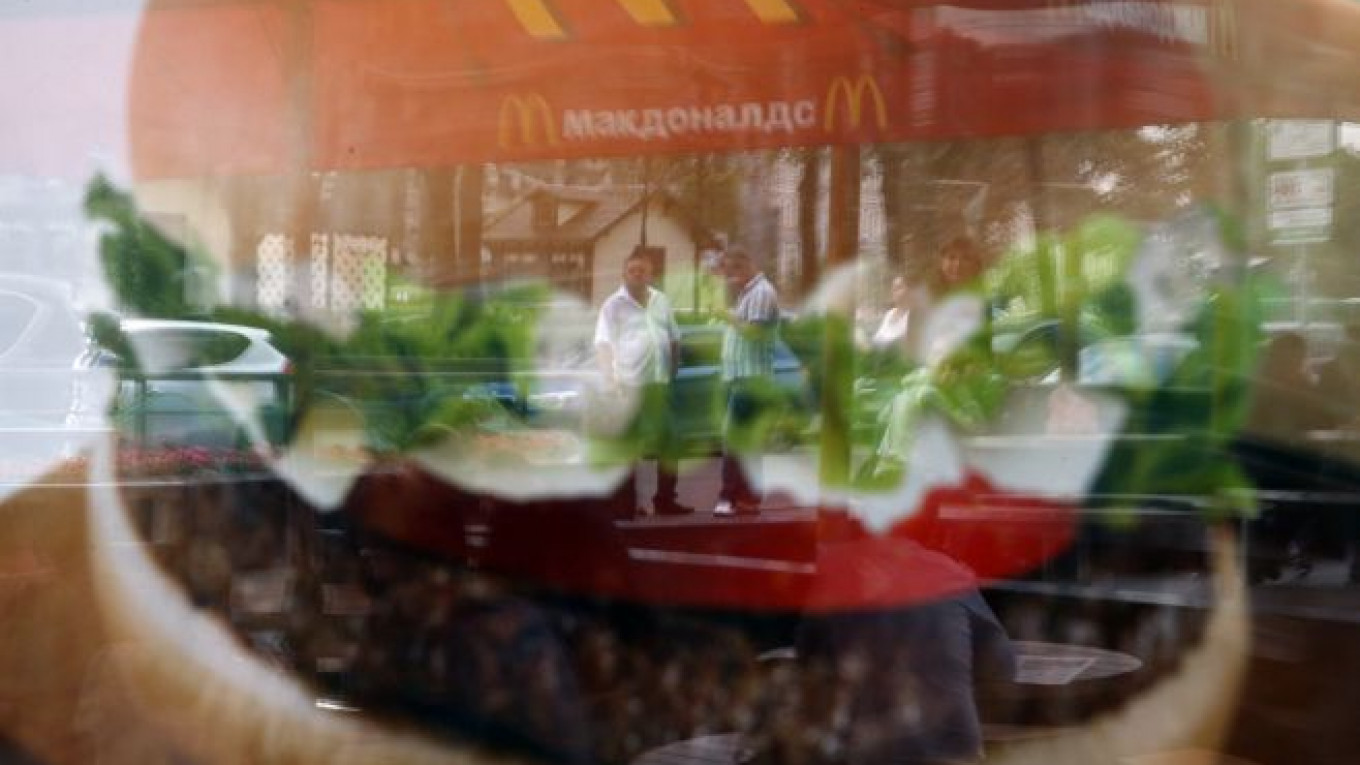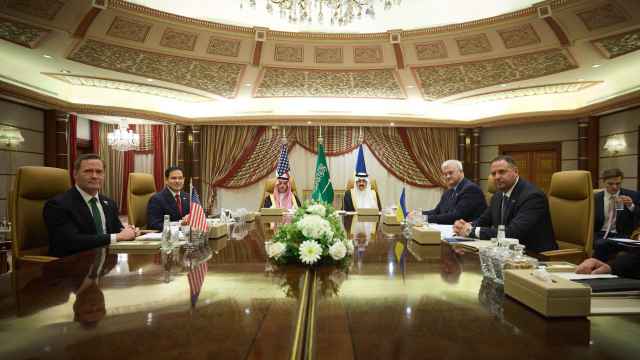As McDonald's is hounded by sanitary inspectors demanding restaurant closures on the Russian mainland, citizens devastated by the prospect of a homeland shorn of Golden Arches, Big Macs, and McFlurries might want to adopt some Crimean stoicism.
Crimea, which Russia annexed from Ukraine in March, has been a McDonald's-free zone for four months, but no one is experiencing withdrawal symptoms or bellyaching about the loss, according to the peninsula's leadership.
"No one is unhappy [that McDonald's has gone]. There hasn't been a single complaint from tourists or Crimeans," ITAR-Tass quoted acting Crimean Prime Minister Sergei Aksyonov as saying Thursday.
"We will be healthier, everything's fine. McDonald's — it isn't our [Russian] food. Look at the people who eat in McDonald's, a lot of them can only walk through doorways by turning sideways," he continued.
Russia's consumer rights watchdog on Wednesday shut four McDonald's restaurants in Moscow citing breaches of sanitary rules, and on Thursday started unscheduled inspections of the chain in a number of Russian regions, raising the specter of further closures.
McDonald's shut its three restaurants in Crimea at the start of April "due to manufacturing reasons independent of McDonald's." The U.S. fast food chain provided no further details on the reasons for the closures, which came soon after the annexation.
Relations between Russia and U.S. have continued on a downward spiral since Moscow's addition of Crimea, with both sides imposing sanctions on each other against the backdrop of the increasingly bloody crisis in Ukraine, giving rise to suspicions that the recent targeting of McDonald's is politically motivated.
See also:
McDonald's Raided By Russia's Food Watchdog Over 'Hygiene Complaints'
A Message from The Moscow Times:
Dear readers,
We are facing unprecedented challenges. Russia's Prosecutor General's Office has designated The Moscow Times as an "undesirable" organization, criminalizing our work and putting our staff at risk of prosecution. This follows our earlier unjust labeling as a "foreign agent."
These actions are direct attempts to silence independent journalism in Russia. The authorities claim our work "discredits the decisions of the Russian leadership." We see things differently: we strive to provide accurate, unbiased reporting on Russia.
We, the journalists of The Moscow Times, refuse to be silenced. But to continue our work, we need your help.
Your support, no matter how small, makes a world of difference. If you can, please support us monthly starting from just $2. It's quick to set up, and every contribution makes a significant impact.
By supporting The Moscow Times, you're defending open, independent journalism in the face of repression. Thank you for standing with us.
Remind me later.






